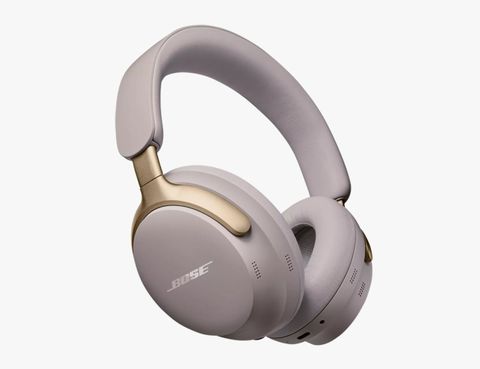Noise canceling headphones have become big business in the last couple decades, and it’s not hard to understand why. The world feels as though it grows louder and more distracting by the day, both on the micro and macro scales; finding a refuge from the physical noise and the mental static it can cause has become ever-more essential to maintaining sanity.
Which has been good news for the folks at Bose.
Bose has been doing noise-canceling headphones longer than most. In fact, the brand actually released the first commercially available pair, all the way back in 1989 — a pair originally designed for aviation use — before bringing them to a wider consumer market in the year 2000. (I remember buying a pair back in college that still required using a 3.5mm jack to listen to music, with a AAA battery to run the ANC.)
Upgrades have been slow and steady in the years since, but with a raft of competitors raising their heads over the course of the last decade, the company needs to keep its product fresh to stay relevant. For 2023, Bose rebranded its top-of-the-line noise cancelling headphones with QuietComfort Ultra branding for both the wireless earbud model and the over-the-ear version. Having already sampled the in-ear Ultras, I was curious to see how their bigger sibling would fare in comparison.
Bose QuietComfort Ultra Headphones: What We Think
The new QC Ultras are more evolutionary than revolutionary, but that’s no bad thing; Bose’s ANC over-ear headphones have long been some of the better bets in the field. The new set are comfortable to wear, fitting easily on the head and boasting surprisingly little mass, and they cancel out unwanted noise very well. If you have an existing pair of Bose over-the-ear headphones that you like and work fine, there’s no need to upgrade. But if you’re in need of a new set of ANC cans, they’re certainly worth considering.
To learn more about our testing methodology and how we evaluate products, head here.
Comfort is king with these headphones
I’ve been using a pair of older Master & Dynamic headphones as my go-to setup at home for several years now, and I’ve rarely had an issue with them, apart from some slight fit issues getting the cups around the arms of my eyeglasses. I never thought twice about their comfort … at least, until I popped on the Bose QC Ultras.
Even fresh out of the box and not broken in, the QuietComfort Ultras proved, well, comfortable. They fit around my glasses well, held onto my head securely but never tightly, and sealed up nicely around my ears.
The noise cancellation works extremely well
Like I said, Bose has been in the noise cancellation biz for a very long time; they know what they’re doing. Even aboard the racket of a commercial jet or while walking down the noisy streets of Manhattan, the QC Ultra headphones do a great job blocking out ambient sonic vibrations. I even tested them out by blasting some Foo Fighters from an Alexa Echo Dot next to me, then turning the headphones on and listening to something else more low-key. Even with Grohl et. al. blasting at 70 decibels, I could hear my other music crystal-clear.
And that clarity doesn’t cost much in terms of battery power. Much like their QuietComfort 45 predecessors, the QC Ultras are rated for up to 24 hours of playback; I didn’t run them down to empty, but after four hours of use on an airplane, they were only down to around 80 percent, which suggests that factory estimate is fairly solid. (And when the time comes to charge up, they can do it quickly thanks to USB-C.)
The ‘Immersive Audio’ spatial audio feature is nice, but not a game-changer
The biggest feature that separates the QC Ultras from their forebears is what Bose calls “Immersive Audio” — software that enables both traditional spatial audio (where it seems like the sound is coming from a fixed point in front of you) and the brand’s Immersive variant, where the sound seems to be coming from all around you.
Much as I found with the QuietComfort Ultra earbuds, on the over-ear headphones, this feature is certainly pleasant enough; the Immersive mode makes the sound feel a little warmer and less cramped, but it’s not the sort of revolutionary feature that should have you running out to fork over four Benjamins and some Jacksons.
Bose QuietComfort Ultra Headphones: Alternatives
Apple’s AirPods Max are the clearest competitor here; while they’re slightly more expensive at $480, their extreme compatibility with other Cupertino devices and their sleek design makes them a great fit for anyone with a lot of other Apple products. The Sony WH-1000XM5 are also a key foe; they’re slightly cheaper at $400, at least based on full retail pricing, and are an all-around excellent option. (They’re actually our top pick for active noice canceling headphones overall.)








